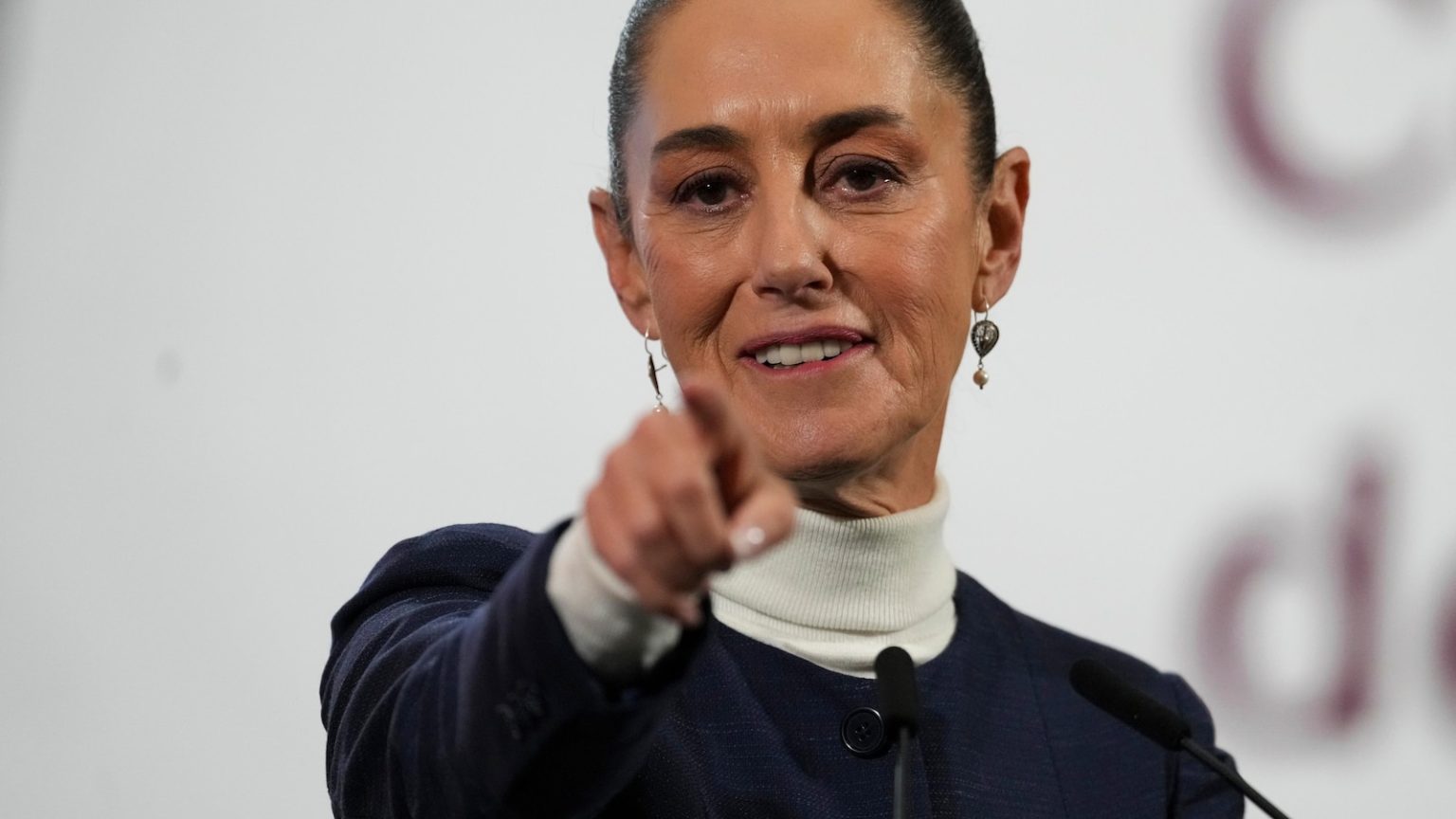Mexico’s Sovereignty and the Battle Against Drug Cartels: A Growing Tension with the U.S.
Sovereignty Concerns Spark Constitutional Reforms
Mexico City has found itself at the center of a brewing diplomatic storm with the United States. President Claudia Sheinbaum announced on Thursday her intention to propose constitutional reforms aimed at safeguarding Mexico’s sovereignty. This move comes in direct response to the U.S. government’s decision to designate six Mexican drug cartels as foreign terrorist organizations. The U.S. action has fueled fears in Mexico that this could pave the way for military intervention on Mexican soil, a prospect that has been met with fierce opposition from the Mexican government. Sheinbaum made it clear that Mexico will not tolerate any form of foreign interference, stating, "The Mexican people will not accept under any circumstances interventions, interference, or any other act from abroad that could be harmful to the integrity, independence, and sovereignty of the nation."
The U.S. Designation and Its Implications
The U.S. decision to label eight Latin America-based criminal organizations, including six Mexican drug cartels, as foreign terrorist organizations was published in the U.S. Federal Register on Thursday. This move follows an executive order signed by President Donald Trump on January 20. The U.S. hopes that this designation will increase pressure on these groups, as it is typically reserved for terrorist organizations with political objectives rather than those driven by economic motives. However, the move has sparked concern in Mexico, where there is a growing belief that this could be a precursor to U.S. military intervention. Mexico has long maintained a firm stance against any form of foreign military involvement in its domestic affairs, and this designation has only heightened tensions.
Mexico’s Stand on Foreign Intervention
President Sheinbaum emphasized during her daily press briefing that Mexico will not permit any foreign involvement in investigations or prosecutions without the explicit authorization and collaboration of the Mexican government. This stance builds on the legacy of her predecessor, former President Andrés Manuel López Obrador, who had already enacted laws limiting the operations of foreign agents in Mexico. These laws require foreign agents to inform Mexican authorities of their movements and restrict their ability to operate independently. Sheinbaum has now proposed enshrining these restrictions in the Mexican constitution to ensure that they remain in place for the long term. "What we want to make clear in the face of this designation is that we do not negotiate sovereignty," she asserted. "This cannot be an opportunity for the United States to invade our sovereignty."
Proposed Reforms Target Gun Trafficking
In addition to the measures aimed at protecting sovereignty, Sheinbaum’s administration has also proposed constitutional reforms to impose the most severe legal penalties on foreigners involved in the smuggling, distribution, and manufacture of guns. This move is part of a broader effort to address the rampant gun violence that has plagued Mexico in recent years. Mexico has long called on the U.S. to take greater responsibility for stemming the flow of illegal firearms into the country, often originating from U.S. gun shops and manufacturers. By enshrining these penalties in the constitution, Mexico is signaling its determination to crack down on the illegal arms trade, which has been a significant contributor to the violence perpetuated by drug cartels.
The Role of Mexico’s Congress in Enacting Reforms
Sheinbaum’s Morena party, along with its allies, holds a majority in both chambers of Congress, giving her administration the political capital to push through these constitutional reforms. This is not the first time that the Morena-led government has successfully enacted significant changes to Mexico’s legal framework. Over the past few years, the party has managed to pass a number of other constitutional reforms, demonstrating its ability to navigate the complexities of Mexico’s legislative process. The proposed reforms are likely to face little resistance in Congress, given the strong support they have from Sheinbaum’s coalition.
A New Chapter in U.S.-Mexico Relations
The proposed constitutional reforms mark a new chapter in Mexico’s efforts to assert its sovereignty in the face of what it perceives as encroachment by the United States. While the U.S. government has framed its designation of Mexican drug cartels as a necessary step in the global fight against organized crime, Mexico views it as an overreach that threatens its autonomy. The reforms, particularly those related to gun trafficking and foreign interference, are a clear message from Mexico that it will not stand idly by while foreign powers undermine its authority. As the U.S. and Mexico continue to navigate this complex and often contentious relationship, the outcome of these reforms will have significant implications for the future of bilateral relations. One thing is certain: Mexico is determined to protect its sovereignty at all costs.















